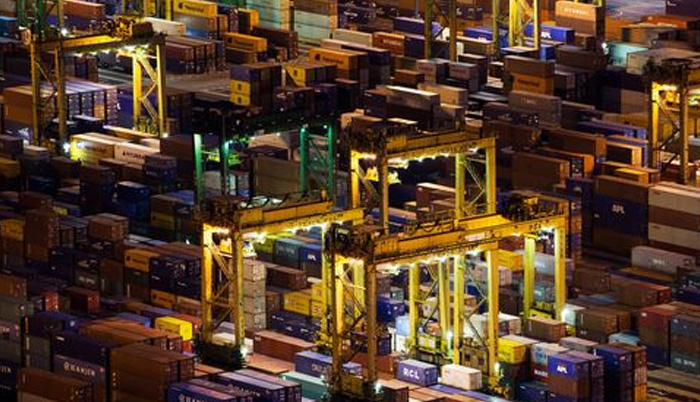![]() Home > World Business
Home > World Business
Trump’s Move to Dump TPP Bucks Growing Dependency on Asia: Q&A

![]() January 25th, 2017 | 08:53 AM |
January 25th, 2017 | 08:53 AM | ![]() 1038 views
1038 views
BLOOMBERG.COM
U.S. President Donald Trump’s decision to withdraw from the Trans-Pacific Partnership, one of the largest proposed regional trade blocs in history, has dealt a blow to some of Asia’s biggest economies.
The seven Asia-Pacific signatories to the TPP -- Japan, Vietnam, Malaysia, Singapore, Australia, Brunei and New Zealand -- had collective two-way trade with the U.S. of almost $400 billion in 2015, about 60 percent of America’s total commerce with the European Union. Other Asian countries such as South Korea, Thailand and Indonesia had signaled interest in joining the agreement.
U.S. companies are probably not happy either: The deal would’ve removed 18,000 tariffs on American-made products.
How much does Asian trade matter for the U.S. economy?
Trade with Asia is a key pillar of the U.S. economy. Developing countries in Asia, including China, accounted for 24 percent of all U.S. commerce in 2015, up from 11 percent in 1995. Japan alone accounted for just more than 5 percent of all U.S. trade in 2015.
How much does U.S. trade matter for Asia?
Trade with the U.S. has been a key development driver in countries ranging from South Korea to Vietnam. China has long enjoyed a huge trade surplus with the U.S., which has grown from around $84 billion in 2000 to $337 billion in 2015, a lifeline for companies employing tens of millions of people. The U.S. is also the final destination for much of Asia’s exports, with a supply chain extending from Taiwan to Malaysia. Direct trade with the U.S. was also a boon for many Asian countries in the wake of poor demand from China’s slowing economy in first half of last year.
Which countries are seeing rapid trade growth?
China is the U.S.’s largest trading partner, with total commerce worth $626.7 billion in 2015, a figure that has grown 10 times since 1995. American trade with other Asian nations has also grown rapidly in that time: Vietnam has expanded five times to $45.7 billion, Singapore is up nearly 25 percent to $51.6 billion, and South Korea has risen more than 34 percent to $116 billion.
Which countries stood to benefit most from TPP?
Vietnam, now a major manufacturing center for products ranging from running shoes to mobile phones, was widely seen as one of TPP’s biggest winners, potentially boosting GDP by 11 percent by 2025. With cheaper access to the global auto-industry’s biggest export market, Japanese car and auto-parts makers would also have been major beneficiaries. Trump’s move is particularly damaging for Singapore, where leaders were hoping the accord would help boost a sagging economy.
Which Asian countries have bilateral trade deals with the U.S.?
Of the 20 countries around the world that have free trade agreements with the U.S., three are from the Asia-Pacific: Australia, Singapore and South Korea -- also a frequent target of Trump’s rhetoric.
What is the RCEP agreement now being championed by China?
Trump’s termination of the TPP has put another pan-Asia trade pact under the spotlight: the Regional Comprehensive Economic Partnership, which covers more than 45 percent of the world’s population and 40 percent of global trade.
Led by the 10-nation Association of Southeast Asian Nations, RCEP seeks to harmonize existing trade ties between China, Japan, India, South Korea, Australia and New Zealand. It is considered a lower quality trade deal compared with TPP, with less stringent rules on intellectual property, labor and environmental standards, and the operation of state-owned enterprises. The next round of talks are scheduled to start next month in Japan.
Source:
courtesy of BLOOMBERG
by David Roman and David Tweed
If you have any stories or news that you would like to share with the global online community, please feel free to share it with us by contacting us directly at [email protected]